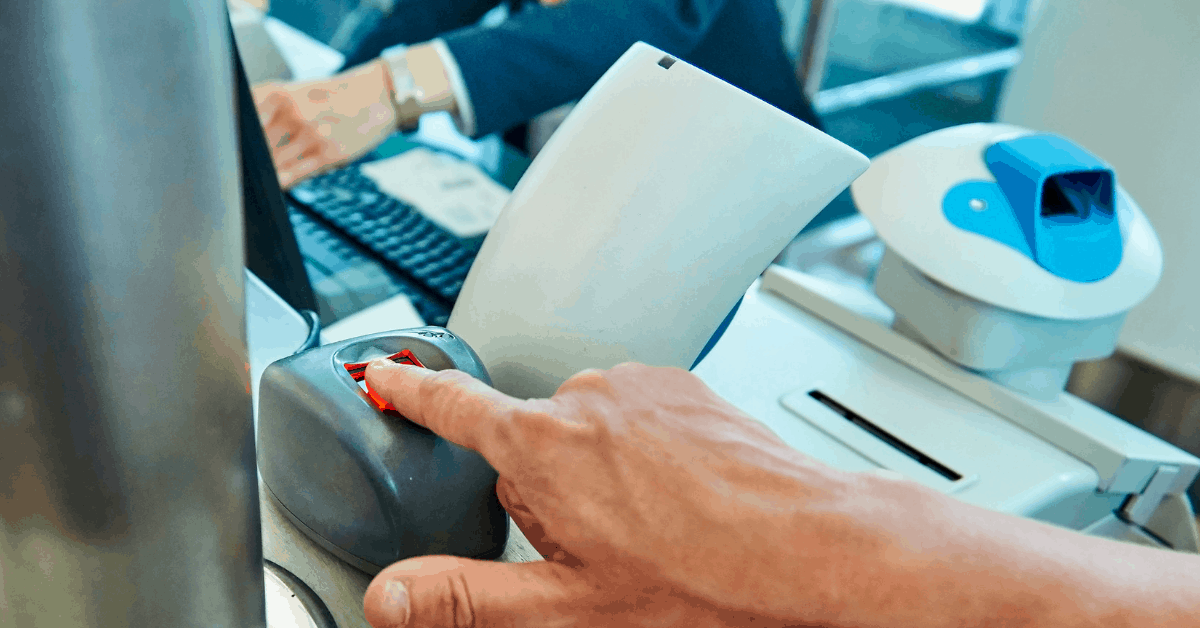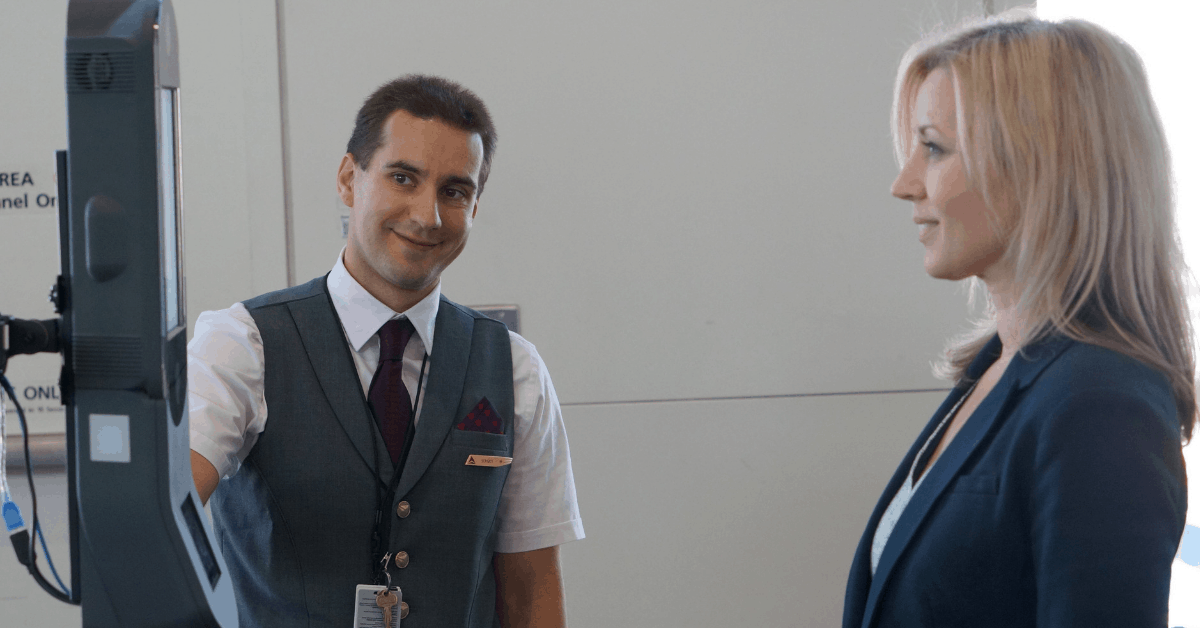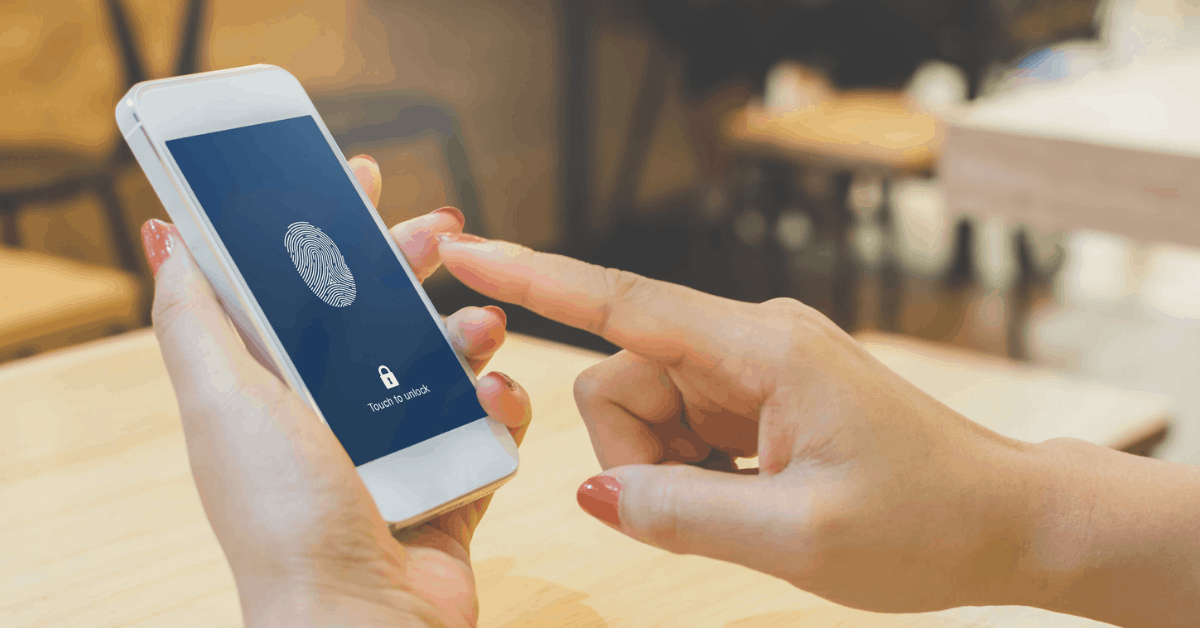Fingerprint and facial-recognition technology have become part of everyday life for many of us. We rely on it to unlock our phones and laptops and even entrust access to our banking apps to the same technology.

Biometric authentication is a process which relies on the unique physical characteristics of an individual to verify their identity. While once this process was undertaken by humans, today you’re just as likely to have your identity checked by a computer, using sophisticated facial recognition technology.
If you’ve taken a flight in the last few years, chances are you’ve also encountered this technology at the airport.
Passing through airport security and boarding your flight can be a laborious process. Clearing multiple security checkpoints and ID checks, constantly pulling your passport and boarding pass out of your bag, and international flights often
The future of travel is looking a little more relaxed, as biometric technologies are helping to streamline these processes.
Biometric technology at customs
Biometric technology is already widely used in airports to speed up customs processes. Many countries, including the U.S., now issue biometric passports, or “ePassports”, which have a tiny electronic chip containing your travel history and biometric profile.
ePassports allow you to use biometric control gates, commonly referred to as “e-Gates”, at customs, where a computer will scan your face and run an algorithm to confirm your identity, instead of a border official.
The use of biometric passports and e-Gates are already speeding things up at many airports in the U.S. According to a report by the U.S. Customs and Border Protection Agency in 2017, passengers arriving at airports with e-Gates were clearing customs and spending less time waiting in line.
Currently, 96 countries issue
The growing popularity of e-Gates is making ePassports an extremely useful tool for frequent flyers. While once countries tended to carefully select which nationalities could clear customs biometrically, they’re becoming more lenient as the technology has proven to be steadfast, secure, and convenient.
Recently, the U.K. opened up the use of their biometric control gates to a number of new nationalities. Previously only available to EU citizens, they can now be utilized by U.S., Canadian, Australian, and New Zealand citizens. Heathrow Airport is notorious for long queues at customs, and the expansion of their e-Gate system should help to speed things up – particularly for ePassport holders.
According to a forecast by London-based market researcher FMI, the number of
Biometric technology at the gate
Along with the airports themselves, airlines are also rolling out biometric technologies to speed the check-in, baggage check, and boarding process for customers.
In November last year, Delta Airlines, in partnership with U.S. Customs and Border Protection, unveiled the U.S’s first fully biometric terminal, located at Maynard H. Jackson International Airport in Atlanta.
Customers flying internationally via the terminal can utilize facial recognition “from curb to gate”. Biometrics are used to check customers in via self-serve kiosks, to check baggage, to identify and validate customers at the TSA checkpoint, and to verify and board customers onto the aircraft.

According to a press release by Delta Airlines the new biometric terminal has been an overwhelming success so far. Delta airlines COO Gil West explained how this new technology is improving its customers’ airport experience.
“We’re removing the need for a customer checking a bag to present their passport up to four times per departure – which means we’re giving customers the option of moving through the airport with one less thing to worry about,” he said.
Based on initial data collected by the airline, facial recognition at the gate is saving the airline an average of two seconds of boarding time per customer, or 9 minutes in total for each widebody aircraft.
Off the back of this success, Delta Airlines plan to roll out a similar curb-to-gate biometric experience at their airline’s hub in Detroit in late 2019.
But this is just the tip of the iceberg. British Airways are now boarding passengers in Orlando, Miami, Los Angeles, and New York using biometric facial recognition, which is allowing them to board faster than ever before.
And according to a study by SITA, specialists in transport communications and IT for the air transfer industry, 71 percent of airlines, and 77 percent of airports are planning major biometric programs in the next three years.
If you haven’t yet had the pleasure of your features being scanned and scrutinized by a computer, chances are you’ll experience it soon.

Do airport biometrics pose a security risk?
It may be faster and more convenient to pass through customs or board your plane using biometric technology, but is it just as accurate? The answer appears to be yes.
In a recent study published by American scientific journal PNIS, scientists pitted 20 forensic facial examiners against the latest facial recognition algorithms, each of which were tasked with matching difficult image pairs. Results revealed the best of these algorithms performed just as well as the human experts.
In some airports, the algorithms currently in use may not be the most up-to-date, but on the flip side, not every border agent or flight assistant is going to have the same level of ability for facial recognition. It’s now generally realized that biometric technology is just as effective a method for validating traveler identities.
Not everyone is completely comfortable with biometric technology, with some privacy advocates worried about the potential misuse of collected data. In a September 2018 Washington Post article, Jeramie D. Scott, national security counsel for the Electronic Privacy Information Center, outlined his concerns.
“Right now, there is very little federal law that provides any type of protections or limitations with respect to the use of biometrics in general and the use of facial recognition in particular,” he said.
However, for anyone who frequently endures the drudgery of slow airport processes, the temptation of shaving precious minutes off your travel time may quickly dissolve any data privacy concerns. And if there is one thing we can all agree on, it’s that any steps taken to reduce airport stress, are steps worth exploring.




